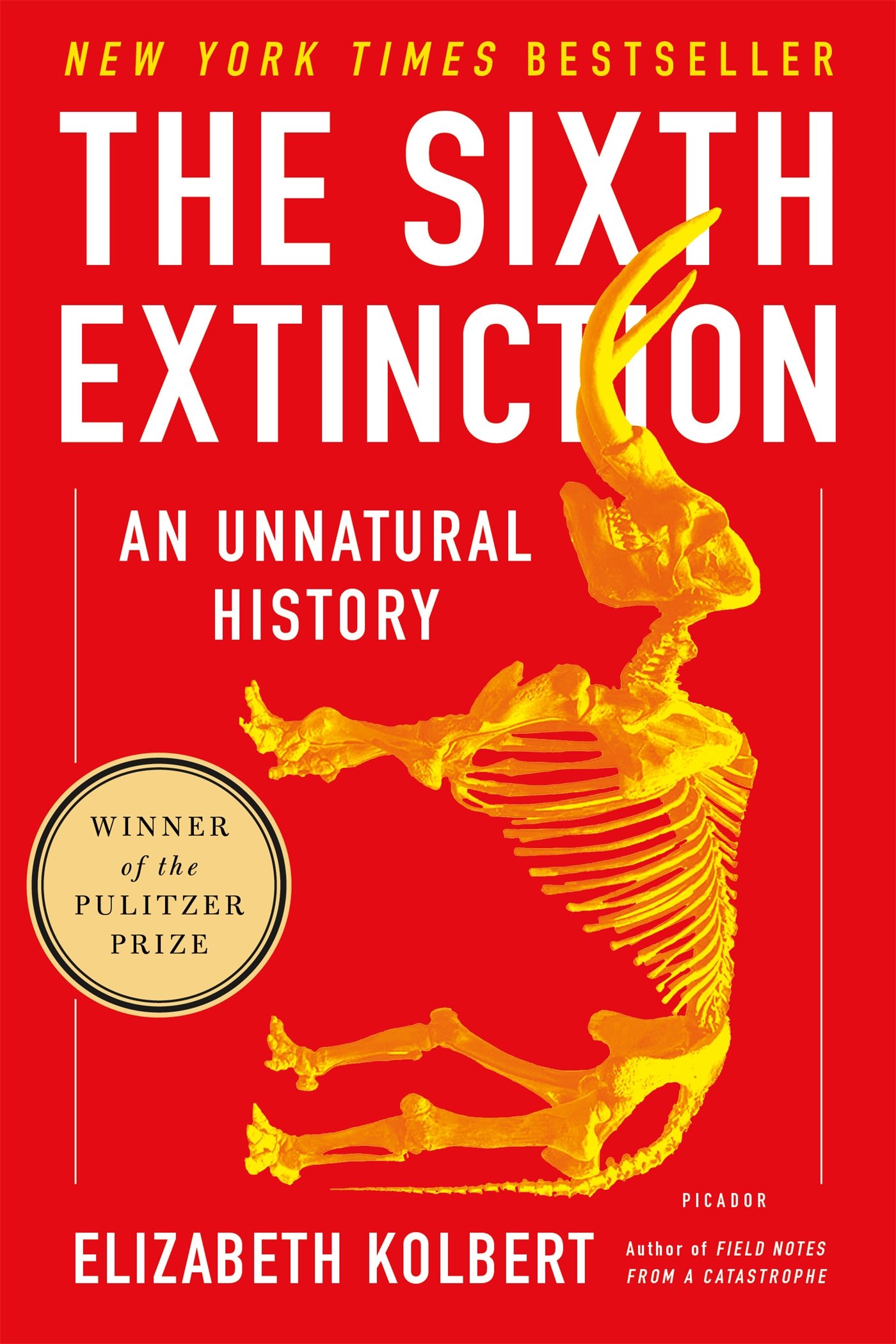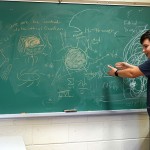
Elizabeth Kolbert’s book was a welcome Christmas gift from Mr. Mahoney. He knows I like science and the environment and good writing. I promptly read it in a few days after Christmas was over when I was recovering from eating so much.
Reading Kolbert’s book on mass extinctions of species, one must wonder whether the earth will ever recover from humans’ folly. Or rather, will species, who, through no fault of their own, find themselves out of luck, out of habitat, out of oxygen, out of adaptation techniques, whatever.
Ask the bats of North America, frogs and toads throughout the world, long lost mastadons, or coral in Australia’s Great Barrier Reef. Kolbert chooses an interesting array of animals and plants to survey in her quest to verify if we really are in the midst of another in a series of mass extinctions that have occurred throughout earth’s history. Accordingly, as a science journalist, not a scientist, she must seek out the advice and guidance of many leading scientists, including a lot of geologists.
I particularly appreciated the geologic angle given my interest in Charles Darwin. Darwin, the father of evolution by means of natural selection, was influenced by the work of Charles Lyell. Lyell was an early geologist that proposed that earth changes slowly over time. Kolbert brings him into the extinction argument as he was one of the first people to propose a theory of how extinctions actually work. She spends a lot of well worth it time tracing the history of the theory of extinction. One wouldn’t think that was interesting but it was.
I feel guilty about saying that I enjoyed this book immensely. A resident of this current world should not be happy about a book that makes it clear how much we have changed it, for the worse. While Kolbert doesn’t focus in on climate change specifically, she does give a lot of attention to ocean acidification, a topic not too many of us know about, and one that is a sort of correlation to climate change. I was never particularly interested. Now I’ll definitely want to watch David Attenborough’s Great Barrier Reef, recently on CBC.
It’s not a book that offers solutions. For that, readers might want to follow up with something like Mike Berners-Lee’s How Bad Are Bananas? The Carbon Footprint of Everything. For a vegan such as myself, the book that really got me on the road to thinking about how the environment affects my daily life through food is Michael Pollan’s 2006 masterwork, The Omnivore’s Dilemma. I’m not critical of Kolbert for not suggesting how to solve our problem. What she is doing is changing attitudes, something that is absolutely necessary before behaviour can be changed. Near the end of the book she tells the sad stories of a certain raven and a very particular rhino. You really have to read the book to appreciate how poignant they are.
Like Mary Roach, author of Gulp: Adventures on the Alimentary Canal, an investigation into the human digestive system (previously reviewed on this blog), Elizabeth Kolbert knows how to use her talents as a writer along with her skill as a researcher to bring a subject alive (no pun intended in this case).
The Sixth Extinction: highly recommended.





